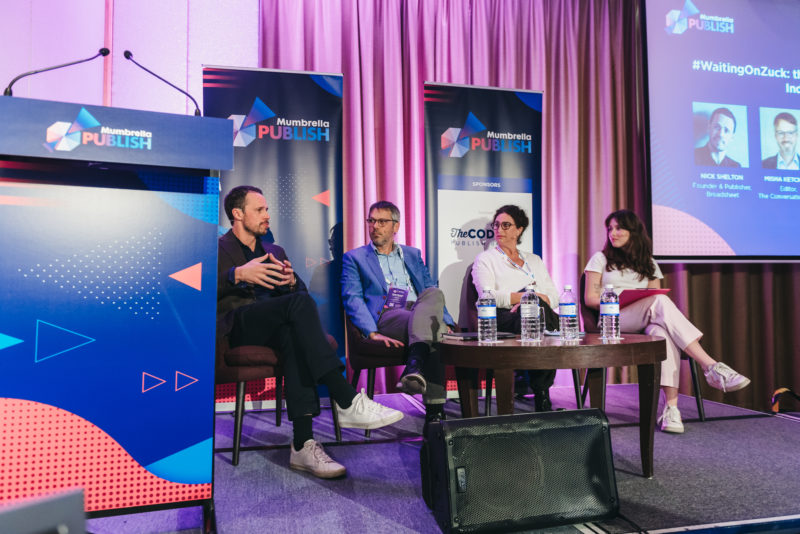Independent publishers still #WaitingOnZuck as News Media Bargaining Code fails to address industry imbalance
“A piece of legislation and a policy, which was very high minded and had really good intentions, has created imbalance within the media ecosystem, which is a very unfortunate unintended consequence,” said Broadsheet founder and publisher, Nick Shelton of the Australian Competition and Consumer Commission’s (ACCC) News Media Bargaining Code at the Mumbrella Publish conference on Wednesday.
Shelton spoke frankly when it came to the implications of the code for small independent publishers at a panel discussion breaking down the context, creation and outcomes of the #WaitingOnZuck campaign that saw 30 independent publishers put a freeze on publishing for 24 hours in protest of Facebook’s failure to pay for content that appears on its platforms.


